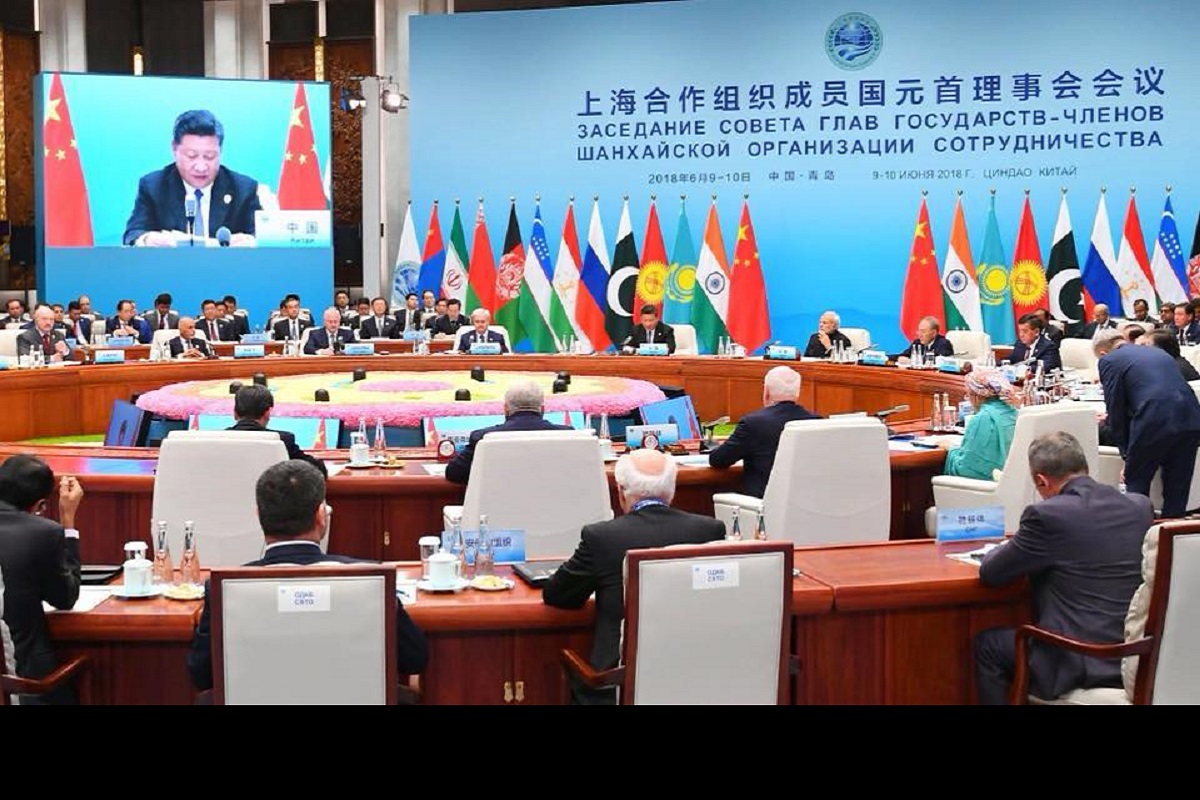India is all set to virtually host the Shanghai Cooperation Organisation (SCO) summit today. The summit will witness the participation of Chinese President Xi Jinping, and Pakistan’s Prime Minister Shehbaz Sharif.
The meeting of the SCO Heads of State will be chaired by Prime Minister Narendra Modi. The major issues that are expected to be on the agenda include terrorism, regional security and prosperity. The theme of India’s chairship of SCO- SECURE is derived from the acronym coined by PM Modi at the 2018 SCO Qingdao Summit.
Advertisement
It stands for S: Security, E: Economic development, C: Connectivity, U: Unity, R: Respect for sovereignty and territorial integrity, E: Environmental protection.
Russian President Vladimir Putin will also participate in the summit this week. This comes at a time when the Russia-Ukraine war has completed over a war. India has condemned the war but has not voted against Russia at any forum.
Speaking to President Putin on the sidelines of the SCO summit in Uzbekistan last year, PM Modi said, “This is not the era of war”, a statement that even made to the G20 communique under the Indian presidency.
Earlier on June 30, PM Modi held a telephonic conversation with Russian President Vladimir Putin and discussed issues of bilateral cooperation including Shanghai Cooperation Organisation (SCO) and G20.
All the SCO Member States, China, Russia, Kazakhstan, Kyrgyzstan, Pakistan, Tajikistan and Uzbekistan, have been invited to attend the Summit.
In addition, Iran, Belarus and Mongolia have been invited as Observer States. As per the SCO tradition, Turkmenistan has also been invited as the guest of the Chair. Heads of the two SCO Bodies, the Secretariat and the SCO RATS, will also be present.
One of the major highlights of the summit, Pakistan and China have expressed their willingness to participate in the summit. Pakistan which has been isolated globally for harbouring terrorists, is set to attend the summit.
With Chinese aggression in 2020 at Galwan, there has been an ongoing stand-off and amassing of troops in large numbers at Indian positions on the LAC in eastern Ladakh. The Indian side has also deployed a heavy number of troops and developed infrastructure at a very fast pace for them.
PM Modi ahead of his visit to the US said that for “normal bilateral ties” with China “peace and tranquillity in the border areas is essential,” the Wall Street Journal (WSJ) reported.
“We have a core belief in respecting sovereignty and territorial integrity, observing the rule of law and peaceful resolution of differences and disputes. At the same time, India is fully prepared and committed to protecting its sovereignty and dignity,” PM Modi said in his interview to the US publication.
Jinping, who will attend the virtual summit of the SCO being hosted by India, will deliver important remarks at the meeting and along with other leaders chart the course for the future growth of the organization, Chinese Foreign Ministry Spokesperson Mao Ning said in a statement.
Shehbaz Sharif will also participate in the SCO meeting. The invitation to the Pakistan PM Shehbaz Sharif was extended by Indian Prime Minister Narendra Modi, informed the Ministry of Foreign Affairs of Pakistan.
The participation of the two leaders comes at a time when China blocked a proposal by India and the United States at the United Nations to designate Lashkar-e-Taiba terrorist Sajid Mir, wanted for his involvement in the 26/11 Mumbai terrorist attacks, as a global terrorist, which also drew stern criticism from New Delhi.
India joined the SCO in 2005 as an observer country and became a full member of the group at the Astana Summit in 2017, marking a watershed point in its relationship with the Organisation.
In the last six years, India has taken an active and positive role in all SCO operations.
At the SCO Summit in Samarkand in September 2022, India took over the chairmanship of the SCO for the first time from Uzbekistan.
During India’s presidency, the SCO has reached new milestones in the depth and intensity of its engagements and interactions across wide-ranging sectors.
India created five new pillars and focus areas of cooperation in SCO, Startups and Innovation, Traditional Medicine, Digital Inclusion, Youth Empowerment and Shared Buddhist Heritage.
Two new mechanisms in SCO, Special Working Group on Startups and Innovation and Experts Working Group on Traditional Medicine, were created at India’s initiative.











